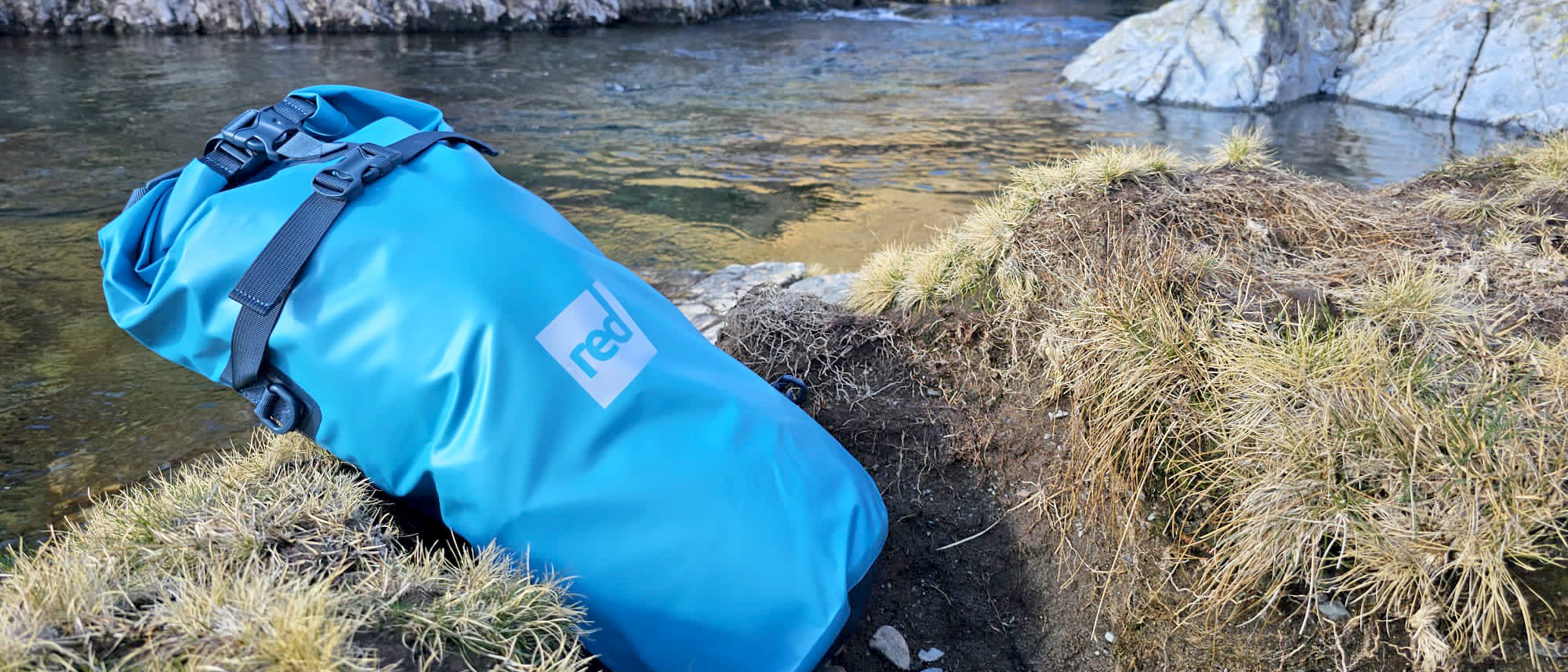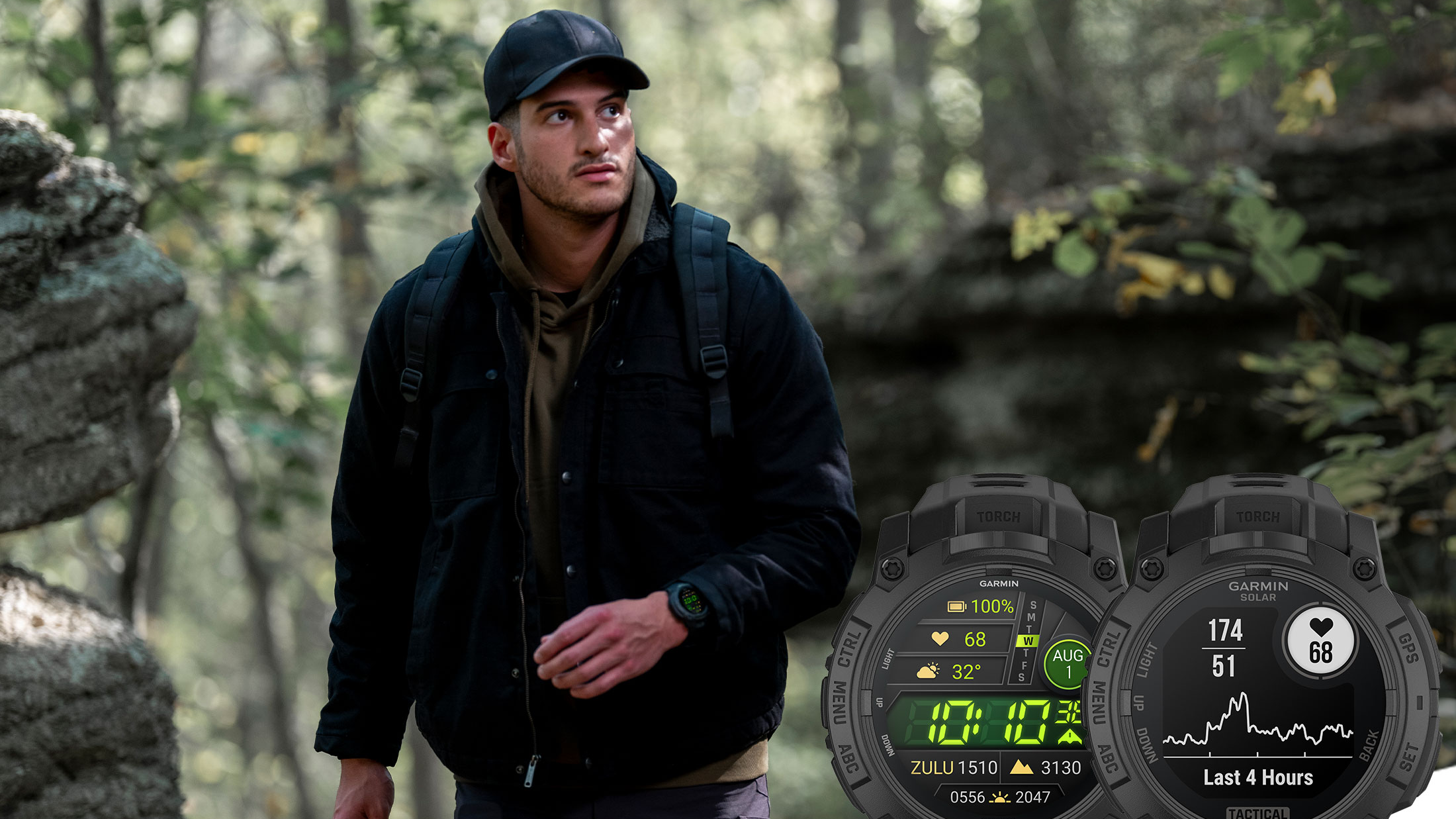Advnture Verdict
A design that harks back to the original roll top dry bags, at first glance there’s not much to get excited about, but look closer and you’ll discover a lot of thought has gone into it. We particularly liked the multi-functional straps.
Pros
- +
Straps can be removed completely
- +
Webbing loops and D-rings on straps
- +
Simple inner design leaves plenty of space for kit
- +
Waterproof outer
- +
Secure, roll top closure
Cons
- -
Harness needs to be worn tightened to feel secure
- -
No waist belt
- -
Inner pocket not fully waterproof
- -
No recycled materials used
You can trust Advnture
Meet the reviewer
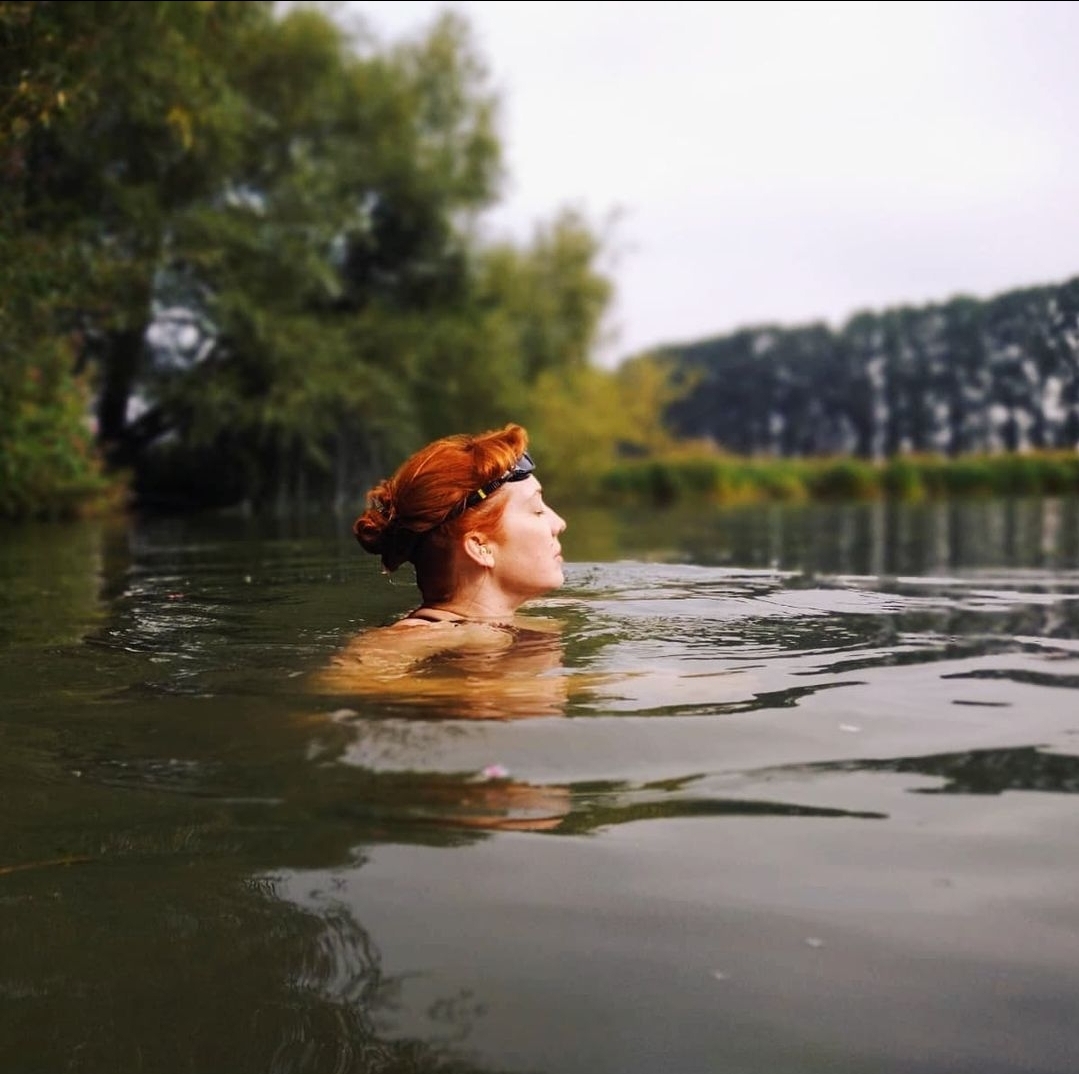
Rosee Woodland developed a taste for adventure at a young age, growing up in a home where camping was the default holiday, and good weather was a vacation bonus rather than a necessity. After bike-packing the length of France in her mid teens with her family, she started to undertake solo forays in her 20s, usually without the benefit of much technical gear at all. Happily, the years she later spent as a mountain biking journalist eventually gave her an appreciation of decent kit! These days she loves a water-based adventure, and is an outdoor swim coach, and a keen free diver. She has a soft spot for Northern Ireland's Mourne mountains, and can also be found hiking and kayaking in Pembrokeshire and the South West of the UK.
Red 30L Waterproof Roll Top Dry Bag Backpack : first impressions
• List price: £34.95 (UK, 30L), £49.95 (UK, 60L)
• Materials: PVC
• Weight (empty, 30L): 790g / 27.9oz
• Sizes available: 30L and 60L
• Harness sizes: One size
• Colors (all sizes): Deep blue, Ride blue and Venture purple
• Best use: Wild swimming, paddle boarding, sailing
Upon initial inspection this is a standard dry bag. Roll top? Check. Clip fastening? Check. Lightweight PVC fabric? Check. So it might not be your first choice if you’re looking for a big investment purchase.
However, a closer inspection reveals a host of useful features, including multiple carrying options and fixings that allow you to fasten it to the deck of a boat or paddle board. It’s also a well-priced option, making it a great entry level choice if you’re new to wild swimming.
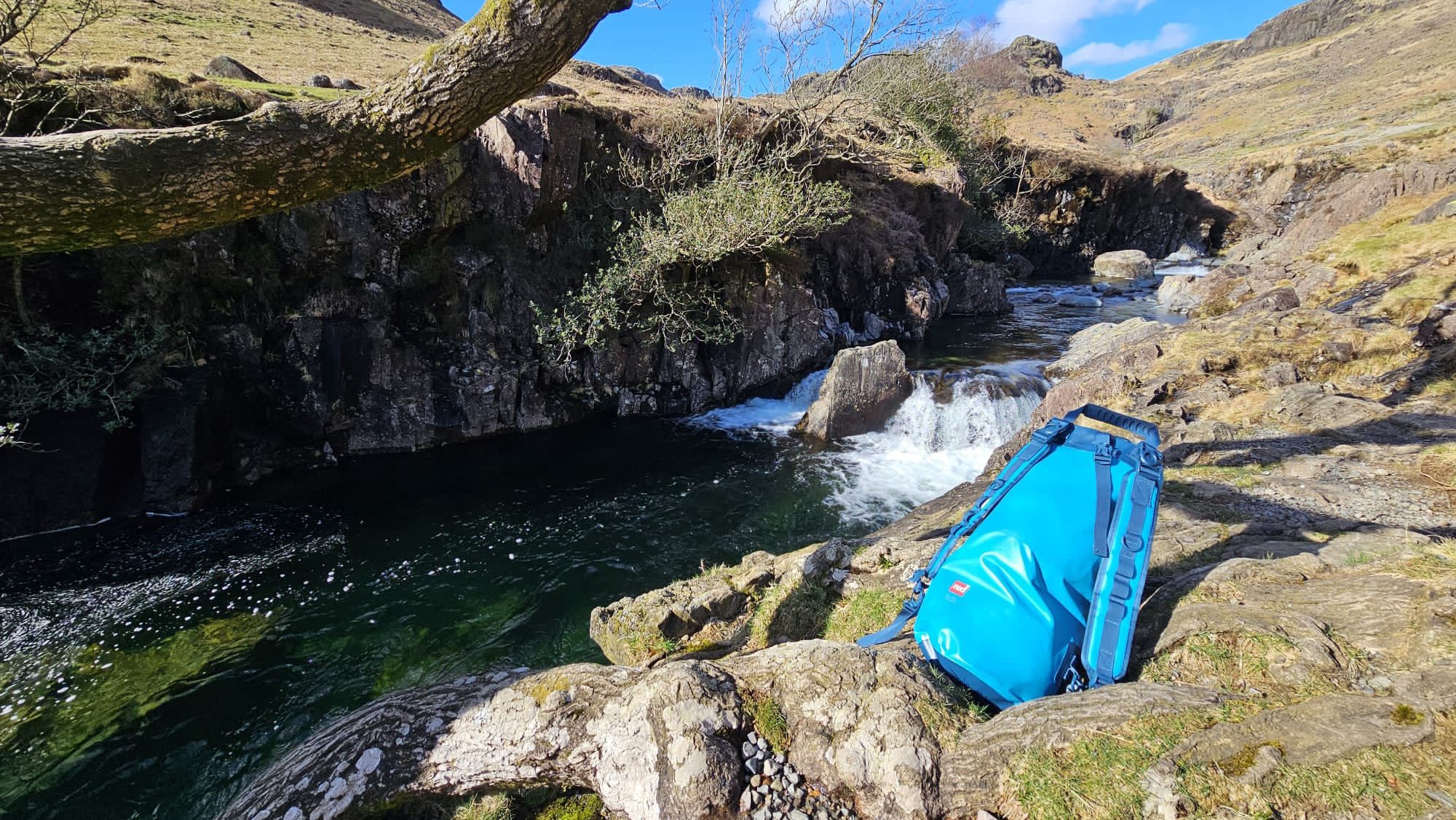
Red 30L Waterproof Roll Top Dry Bag Backpack : in the field
I first used this dry bag to hold all my wild swimming gear on a long weekend away and it’s been a mainstay ever since. After a chilly dip at one of my favourite wild swimming spots I stuffed it full with a sodden wetsuit and other kit and it did its job to a tee, with no water escaping as I hiked and scrambled back to my start point.
I am lazy to a fault when it comes to taking my wet kit out and drying it, so it stayed there for a full day on the floor of our tent, without any water escaping. After (eventually) emptying out my stuff, I tipped out the remaining water. The inner needed a quick wipe with a microfiber towel, but was easy enough to dry and no water lingered in the seams or in the few bits of the back that aren’t made of PVC or hardware.
Here's more on how it performed:
Waterproofing
This bag is made from PVC, with welded and taped seams that will keep out any unwanted liquid. The outer wipes clean easily, meaning you can chuck it on a river bank or beach without worrying about it marking from mud or muck.
The large inner pocket is water resistant, but not fully waterproof, so if you want to store valuables in it then it’s worth wrapping them in something else first.
The PVC fabric isn’t thick, but it’s sturdy enough to feel like you can trust it. Unlike some other more expensive dry bags, it doesn’t claim to be puncture proof, but it feels reasonably tough for the price.
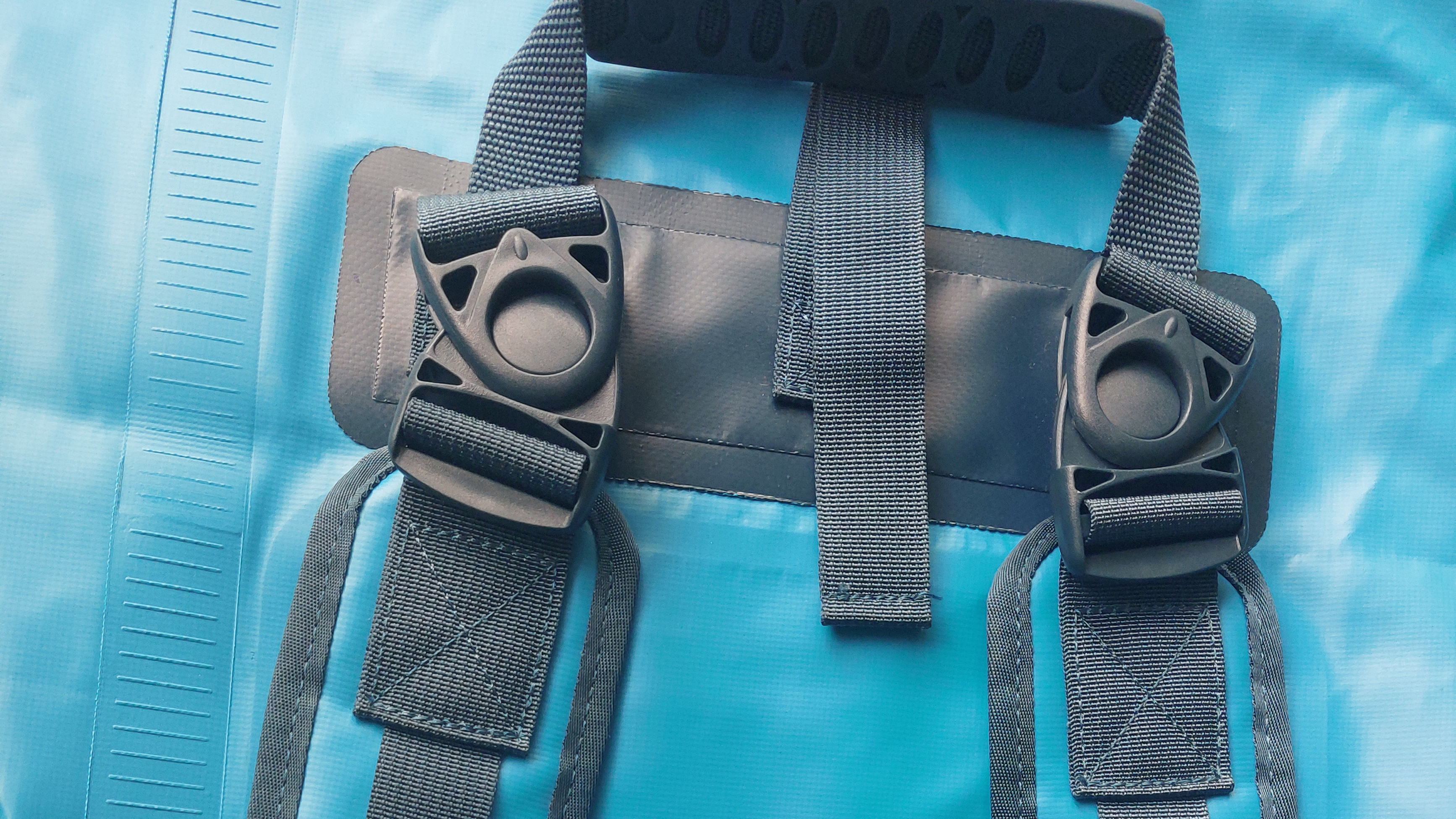
Harness and handles
The carrying system sets this bag apart from other entry-level options. There are standard backpack straps, but they are fully detachable - top and bottom, giving you the option to just use the grab handle, which is made from strapping with a rubber reinforcement that makes it more comfortable to carry when you’re lugging heavy loads.
You can also use the D-rings on the bottom of the bag that the backpack straps clip onto, along with one on the side of the bag, to fasten it to something secure if you’re taking it paddle boarding or onto a boat.
The backpack straps themselves are padded, and feature five webbing loops and a D-ring on each, giving you the ability to clip on extra bits and pieces that you may need. Because of the D-ring fastening at the bottom of the straps they are prone to flapping around, so you need to tighten them well when wearing it, to prevent the bag from swinging loose from your body.
The large clip in system that the straps fasten with at the top of the bag is easy to use, even with cold stiff fingers after a winter swim. There are no chest or waist belt straps on the harness, which is worth bearing in mind if you’re planning to use it to carry heavy gear.
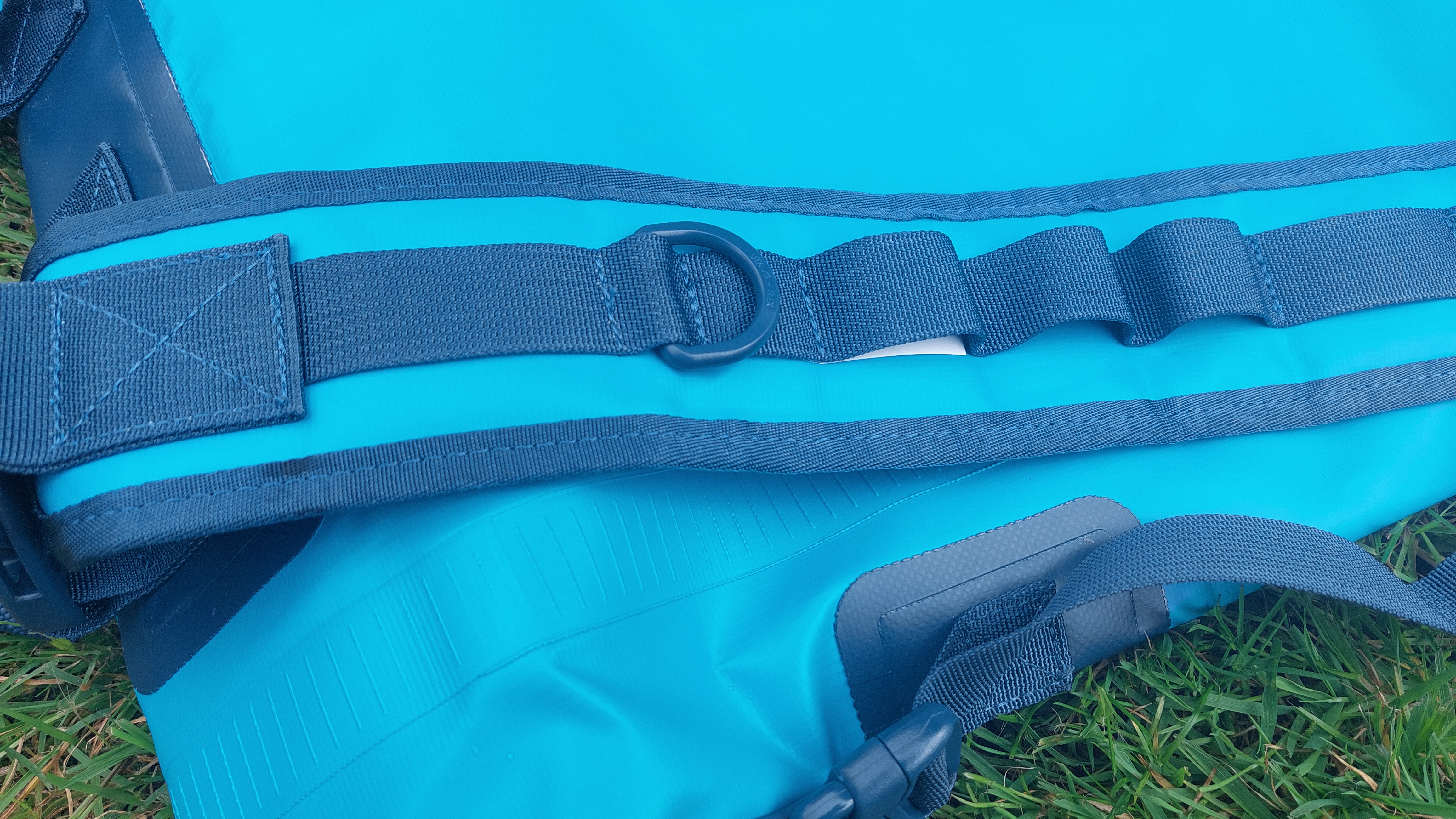
Design
Like many dry bags, the top fastens by being rolled over three times - helpfully marked on the fabric - and then clipped down. Older styles of dry bags tended to fasten with a single clip at the top, and this was actually how I fastened it when I first used it.
It was only later that I realised that the side straps on the bag are actually designed to clip to each side of the top. This lets the top of the bag stay flatter, meaning you can get more in it - a really nice bit of lateral thinking.
There is also a top buckle and strap fastening that you can cinch tight for extra security and to compress the bag further when you’re tight on space. A small reflective logo on the front of the bag is there to help you stay seen in low light conditions, but it’s not that big to feel significant. Definitely don’t rely on it as your sole means of illumination!
This bag feels like a great option for someone just getting into water sports. It’s not a big purchase and you get a decent piece of kit for the price, and the simple reassurance that your wet stuff isn’t going to ruin your other stuff!
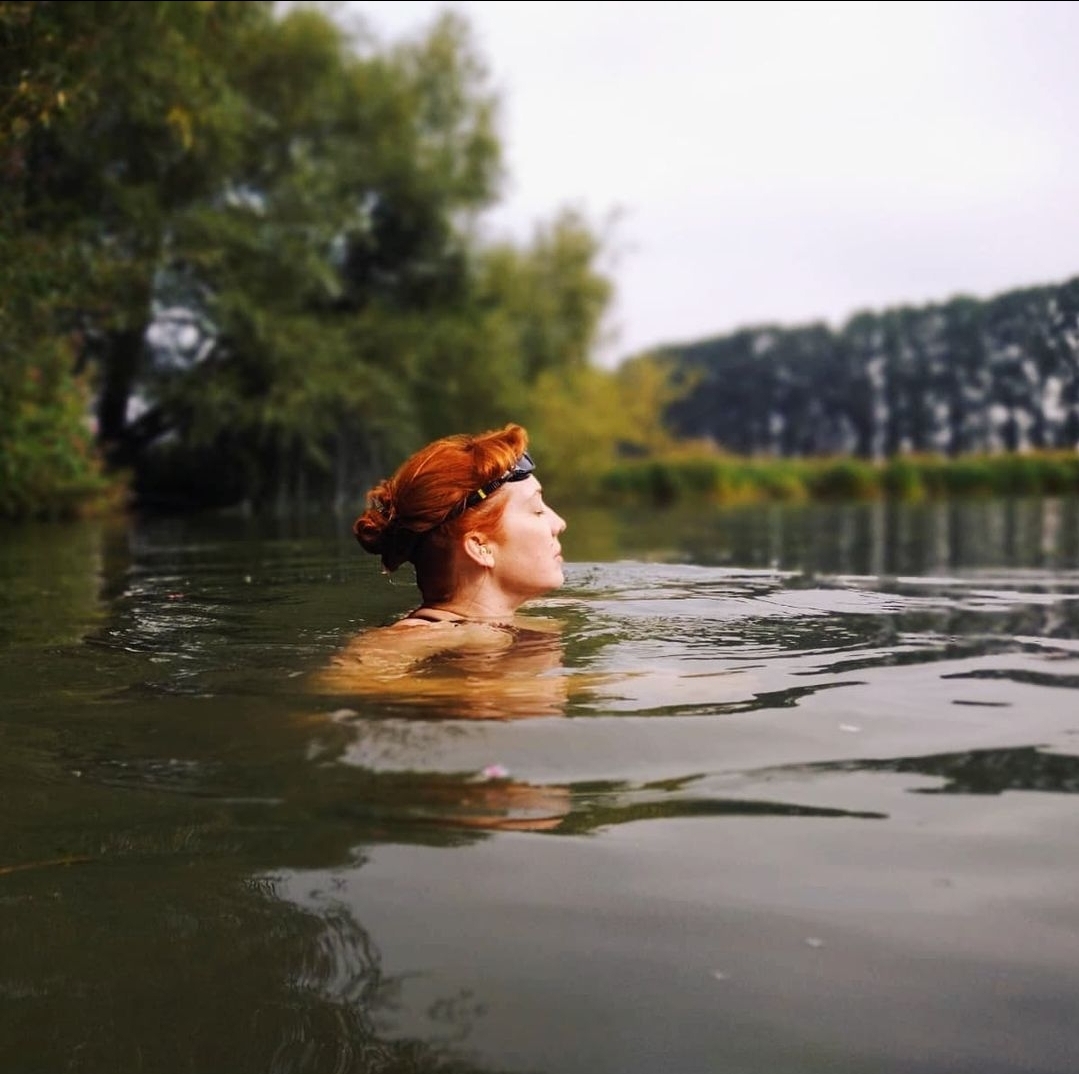
Rosee Woodland developed a taste for adventure at a young age, growing up in a home where camping was the default holiday, and good weather was a vacation bonus rather than a necessity. After bike-packing the length of France in her mid teens with her family, she started to undertake solo forays in her 20s, usually without the benefit of much technical gear at all. Happily, the years she later spent as a mountain biking journalist eventually gave her an appreciation of decent kit! These days she loves a water-based adventure, and is an outdoor swim coach, and a keen free diver. She has a soft spot for Northern Ireland's Mourne mountains, and can also be found hiking and kayaking in Pembrokeshire and the South West of the UK.
